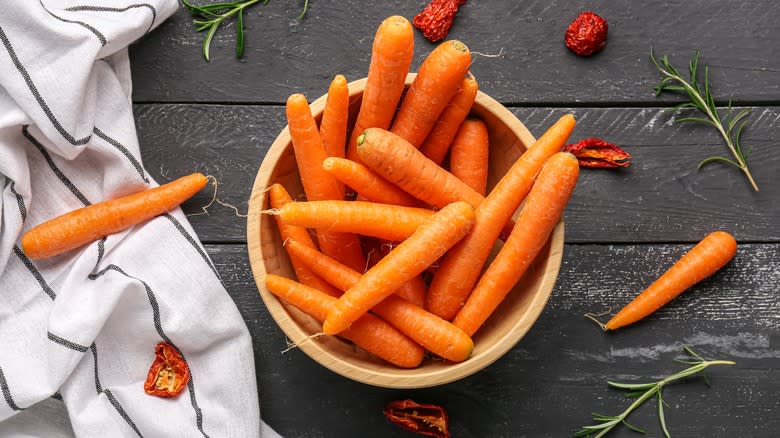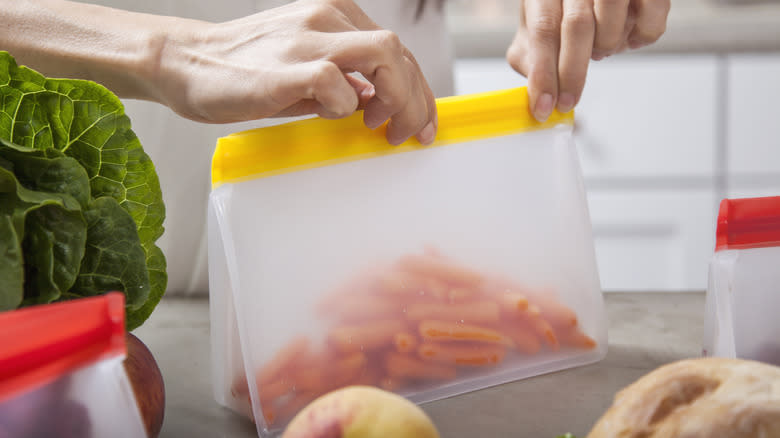Prevent Raw Carrots From Tasting Like Soap With Proper Storage

If you've snacked on some of the uncooked carrots you keep in your fridge and found them tasting like soap, you might have gotten worried about potential contamination or spoilage. You don't have to throw them away, though, since that bitter, soapy flavor isn't a sign of the carrots going bad. It's simply the result of a chemical reaction that happens due to improper storage.
Credit that reaction to the naturally occurring ripening agent, ethylene gas. The introduction of even a very small amount of this gas in the storage compartment where you keep your carrots triggers their increased production of terpenoids. These are volatile compounds that, along with sugar, give carrots their naturally sweet yet slightly bitter flavor. However, when terpenoids reach excessive amounts and are no longer balanced with sugar, they give these root vegetables that unpleasant soapy taste. It goes away once you cook the carrots, though, since the heat breaks down these compounds.
To prevent this reaction from happening, avoid storing carrots (and other ethylene-sensitive fruits and vegetables) beside produce that releases ethylene gas, such as apples, avocados, bananas, peppers, and tomatoes. Exposure to it can trigger over-ripening or the development of undesirable qualities; another example would be broccoli heads turning yellow. If your fridge space is limited, place your carrots in an airtight container or a zip-top bag before storing them in your crisper drawer to minimize their vulnerability to the gas. This also helps them last for up to five weeks.
Read more: 13 Simple Tricks To Pick The Best Fresh Fruit Every Time
Proper Storage Also Keeps Carrots Crispy And Fresh

If the carrots came in a bag, check the packaging for any holes or tears that would allow in ethylene gas. Make sure, too, that the leaves are removed since these draw moisture from the carrots. In a case where neither conditions are met, open the packaging to remove the leaves so your carrots stay crisp and fresh. Wrap the produce in paper towels to blot any lingering moisture, transfer them into a resealable bag or a container with a tight lid, and then store in the crisper.
This is also recommended for storing baby carrots — not the prematurely harvested ones but those sweet, crunchy pieces that were cut out of ripe root vegetables. Drain them of the water from their original packaging then seal them inside a new zip-top bag so they neither dry out, become slimy, nor develop a soapy taste.
Freezing is another storage option. Before placing your carrots in the freezer, it's best to blanch them first to preserve their qualities. Prepare them by removing leaves and peeling the outermost layer. Blanch them for 3 to 5 minutes then immediately submerge them in ice water for the same amount of time. Afterward, drain the carrots, pat them dry, and place them on a parchment-lined baking tray. Put the carrots in the freezer for 5 hours. Once frozen, transfer them into a zip-top bag to store in the freezer for up to a year.
Read the original article on Tasting Table.

